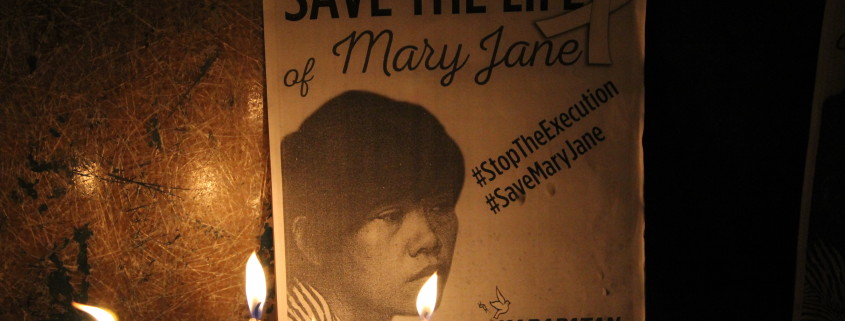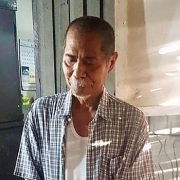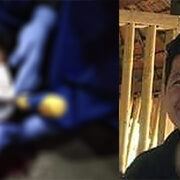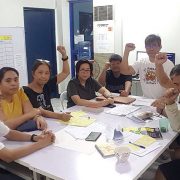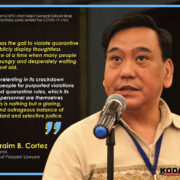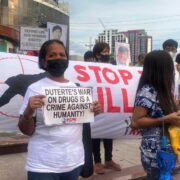Mary Jane Veloso is Flor Contemplacion Part II
The story of Mary Jane Veloso is Flor Contemplacion Part II but for the much happier ending: her execution by firing squad for drug trafficking having been held in abeyance by Indonesian President Jokowi Widodo at the eleventh hour. In the case of Contemplacion, which by the way happened twenty years ago, last ditch efforts by volunteer lawyers led by the late human rights lawyer Atty. Romeo T. Capulong failed to save her from the gallows what with Singapore’s unbending justice system and Lee Kuan Yew’s legacy of authoritarianism.
Since the hanging of our kababayan, Contemplacion, one would think the government would have learned its lessons. After all heads rolled – not just embassy officials but the labor and foreign affairs secretaries were forced to tender their resignation – when it became clear that the mother of three from San Pablo, Laguna had been tortured by police to admit to murdering her friend, a fellow Filipino domestic worker, in order to cover up for the culpability of the victim’s Singaporean employer. Subsequently Flor was convicted and sentenced to death, a victim of gross miscarriage of justice, while embassy officials twiddled their thumbs and did close to nothing.
The explosion of public outrage against the Ramos government and sympathy for the doomed Flor and her hapless family was unprecedented. Flor’s wake in her hometown and the funeral cortege that wound through the streets of Manila drew hundreds of thousands with houses along the route dotted with improvised streamers or placards denouncing the government and expressing sympathy for the plight of overseas Filipino workers (OFWs).
Avowals by foreign affairs and labor officials that they did “everything” to try to save her life could not placate the public, many of whom have relatives who have migrated abroad to find better-paying jobs in order to support their families and therefore could easily identify with Flor’s travails and be filled with dread by her tragic ending.
We saw how President Gloria Arroyo handled the Angelo de la Cruz case to avert a potential source of political instability even before she could be sworn into her controversial second term of office. De la Cruz was a truck driver who had been taken by Iraqi rebels fighting against US armed occupation of their country and held hostage till their demand that Philippine soldiers deployed in Iraq as part of the US-led “coalition of the willing” be pulled out. Arroyo agreed to the pull-out in exchange for De la Cruz’s freedom in spite of US pressure (for after all, her political neck was at stake) even as mass actions calling on her government to do precisely that were violently suppressed. (This columnist has a three-inch scar on the scalp courtesy of the police who dispersed a demonstration at Plaza Miranda while she and other leaders tried to negotiate a peaceful and orderly retreat.)
The point was made. Government’s labor export policy, of promoting Filipino brawn and brain as a major dollar-earning commodity for export, should at the very least be accompanied by all the diplomatic, legal, financial and moral support that government can muster to protect our countrymen overseas.
As for the policy itself that dates back to the Marcos martial law era, then Labor Secretary Nieves Confessor quite candidly, if lamely, justified it by saying labor export served as a “safety valve” given the high unemployment rates in the country; otherwise, there would be unmanageable social unrest. She even cited labor export as a vital part of the government’s counterinsurgency program as it dissuaded job-hungry malcontents from joining the New People’s Army!
Two decades have passed and currently more than 800 OFWs are languishing in prison in several countries, with 41 of them on death row. Most are drug trafficking-related, a testimony to how the risks for OFWs have grown in such dangerous and complex ways. Unfortunately, save for cases where the impending execution of a Filipino becomes a national issue with adverse political implications for certain government officials or for the entire government itself, help for the doomed OFW always comes too little and too late. Sometimes, the attempts are dramatic, i.e. special diplomatic missions of high public officials to appeal for clemency, but nonetheless futile, as more vital legal and political measures had not been taken much earlier. In too many instances, the condemned OFWs are unceremoniously executed and bereaved relatives are left only with the task of picking up the remains of their loved ones if by luck these are repatriated.
Did the Aquino government indeed do everything that they could to save the life of Mary Jane Veloso? And with the happy outcome that her execution was eventually stayed, doesn’t that prove irrefutably that President Aquino no less deserves accolades and not brickbats since he personally intervened with President Widodo? For those interested there is a timeline of events regarding Mary Jane’s five-year journey to the brink of death and her close-to-miraculous escape. (Please search #SaveMary Jane TIMELINE OF EVENTS: Let the facts speak for themselves)
In brief, it shows clearly that Mary Jane did not have a lawyer when she was tried and convicted; she was provided an Indonesian student interpreter whose English she couldn’t understand. Upon conviction the Philippine embassy hired an Indonesian law firm that appealed her case. The Indonesian lawyer had already advised Philippine authorities to run after Mary Jane’s recruiter. Proof that she had been a victim of human trafficking and was merely duped into becoming an unwitting drug mule would be crucial in proving her innocence. But the Philippine authorities did not take that critical step until days before her scheduled execution.
Meanwhile the parents, who had initially been threatened into silence by Mary Jane’s recruiter (they were told that the drug syndicate was powerful and that it would go after them if they approached the mass media or government officials and that the syndicate would get Mary Jane off the hook) started knocking on the doors of the DFA and PDEA when they learned she was on death row but their appeals received only scant and diffident attention.
It was only when sympathetic media persons alerted Migrante International of Mary Jane’s plight and connected them with the family did the campaign to save Mary Jane begin in earnest starting with heroic efforts to draw government and media attention on her case. Pro bono lawyers were mobilized who immediately got in touch with their Indonesian counterparts. Indonesian migrant advocates and human rights activists were alerted and also took action including gaining an audience with the Indonesian president himself. OFW communities the world over and their allies among international social movements also sounded the appeal to save Mary Jane’s life.
In short, the Aquino government took notice and went into high gear for Mary Jane only when it loomed as a possible public relations disaster not just domestically but internationally. It is important to get it straight that government is in fact one of the main reasons OFWs find themselves in their dire predicaments even if it is true that they “voluntarily” sought to work abroad. To obscure or muddle this would undermine any real effort to remedy the situation of our OFWs on the short and long term. #
Published in Business World
4 May 2015

